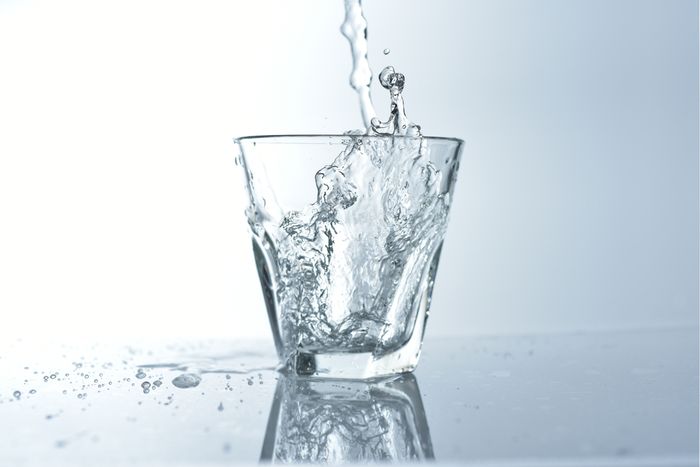What Is the pH Level of Filtered Water?
Published October 6, 2024.

Water purification is important for removing harmful contaminants, bacteria, parasites, and chemicals from your drinking water. Besides making it clean, purifying your water also helps improve its taste, visual appearance, and smell, but it can affect its pH level. In general, water has a neutral pH level of 7, with anything below considered acidic and anything above considered alkaline. We'll take a look into the pH of filtered water.
» Want to lower your water's pH level? Here are ways to do so safely.
Filtered Water – Neutral, Alkaline, or Acidic?
Due to different filtering systems, both filtered tap water and filtered bottled water hover somewhere between 6.5 and 7 on the pH scale.
While this means filtered water is pH neutral for the most part, it's important to keep track of your water's pH level because it can impact your health. The pH of your water can make specific elements like metals and essential minerals more or less accessible to your body, affecting the benefits you get from your water.
How Your Water's pH Impacts Your Health
While there are multiple health benefits of filtered water, water that's more on the acidic side is typically higher in heavy metals and can be detrimental to the body, as it can damage certain tissues in the long run. On the other hand, filtered water that's more alkaline will do no harm (unless you have a kidney disorder). Drinking alkaline water is believed to be beneficial for your overall well-being, as it restores the body's pH and promotes a healthy alkaline environment.
» Need to make your water more alkaline? Learn ways to naturally increase your water's pH.
In Summary
While water with a slightly higher pH will do no harm, drinking water with a pH that's too acidic isn't recommended. In general, the pH level of filtered water is within a safe range, hovering around the recommended neutral state.




